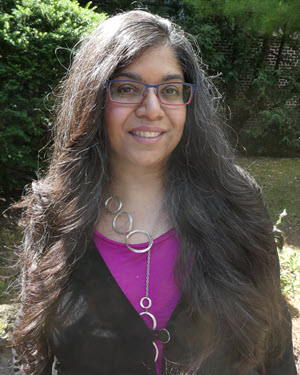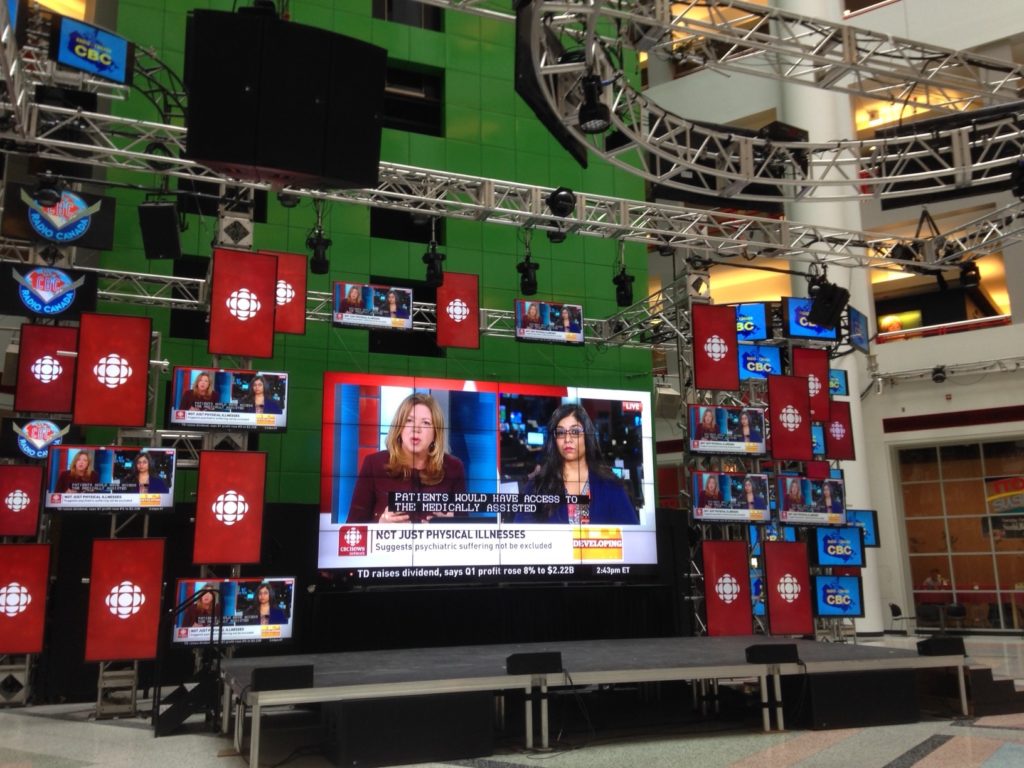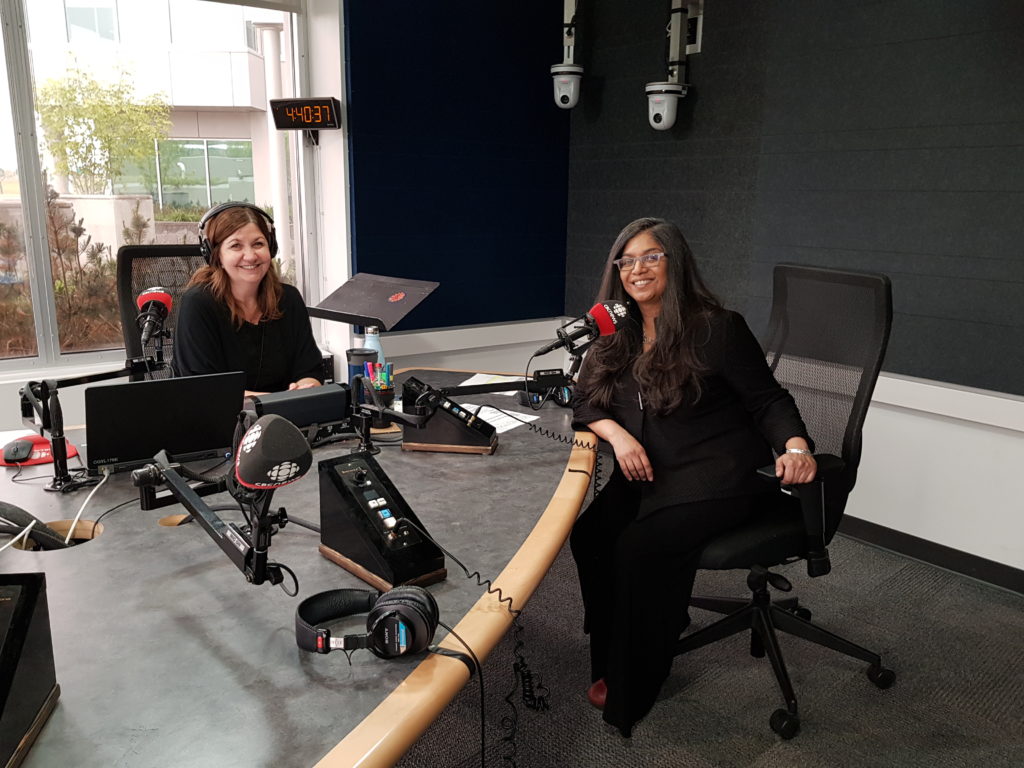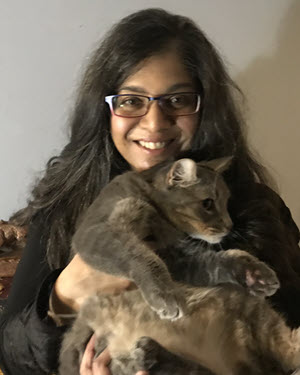(July 29, 2020) What might be the most detail account we have of systemic racism in charity, Shanaaz Gokool is going public with her experience at Dying With Dignity. After spending part of her career as a business manager in the private sector, and a decade long stint as a human rights organizer, Shanaaz Gokool worked at Dying with Dignity (DWD) for five years. In 2016, when she became its CEO, the charity had just had its charitable status annulled because of its political activities. Its finances were in a precarious state. But with a recent decision, the Supreme Court of Canada determined, that sections of the Criminal Code were unconstitutional because they prohibited physicians from assisting in the consensual death of another person.
By 2019, Dying with Dignity had a record of being an integral part of the development of legislation governing the right to die (Bill C-14, Medical Assistance in Dying). The organization’s finances had become more secure through successful fundraising initiatives, and its charitable status had been re-instated based on the re-imagining of the organization as a human rights group. Yet, in July 2019, Gokool was fired from her job.
In October 2019, she sued the right-to-die organization for racial discrimination, making a Statement of Claim in October 2019, which was reported by Kelly Grant of the Globe and Mail. Her complaint says she was let go after pulling the organization back from financial crisis, regaining its annulled charity status, advancing its cause, and experiencing a toxic 12 months of treatment from an all-white board, including being paying less than more junior staff. DWD submitted with a Statement of Defense in December 2019. Gokool replied to the Statement of Defense in January 2020, also reported by Kelly Grant in the Globe and Mail. The next step of the case – which has not yet been tested in court – will be document disclosures and then discovery.

Gokool’s decision to sue was not an easy one, she says, knowing she was putting her entire career on the line. Although the case is still before the courts, and she is limited in what she can say, she has now begun to speak out about her experience, an experience that has taken its toll on her health and the wellbeing of her family. This is her first feature length interview since she began the lawsuit. Gokool spoke with Editor in chief Gail Picco on July 10, 2020. The interview has been edited for clarity and length.
GAIL PICCO: Hi Shanaaz. We’re grateful for you spending some time with us. It’s been about a year since you were fired from Dying with Dignity. How are you feeling now?
SHANAAZ GOKOOL: Whenever people ask me how I’m feeling, it’s such a loaded question. I’ve been through a range of emotions, sometimes all in the same day. For the first six months, even though I have great doctors and supportive family and friends, I felt so alone. Filing a lawsuit is a significant thing to do, not a decision made lightly because you face a lot of risk. But I don’t know what would have been worse, speaking out or not speaking out.
The ultimate decision goes back to the way I was raised. My father died was I was young. When I was a teenager in the 1980s and involved with a Black students group in Dartmouth, Nova Scotia, there were things happening then, that today would go viral. I would talk to my father about it and he taught me how to weigh the elements of making a decision on how to respond. We would talk it through. When I was fired, I could hear my father’s voice, like an urgent whisper, saying ‘now, now is the time you can do something to make a change.’
If this could happen to a CEO, the most senior executive in the organization, what kind of position were more junior people in? I had a lot of privilege as a CEO. I had national and international platforms. I’ve done hundreds of interviews with the media, so I had experience speaking in the press. But it’s one thing to talk about issues and another thing to talk about yourself, specifically your identity. Since I made the decision to sue, it’s been hard to get people to speak out about this. In the last two and a half months, it’s gotten a lot better, but I think it’s important for folks to know the cost of speaking out publicly.
GAIL PICCO: Some people have called you brave and courageous for deciding to go public with a lawsuit around systemic racism in charity. What do you think about that? What does bravery and courage look like at your end?
SHANAAZ GOKOOL: Being called brave and courageous is like walking down the street, seeing a lovely home, then the curtains get pulled back and what you see inside isn’t so pretty. I’m not saying speaking out isn’t brave or that I don’t appreciate the sentiment behind it. I admire others that are doing so and know it takes courage. But my experience of bravery and courage doesn’t feel so good. It means I can’t sleep. It means the hair on my head is literally falling out (and I have more than most). My stomach is in knots all the time. I can’t eat. My skin is a mess. The migraines I’ve had since I was a child are worse. People you’ve worked with for years stop talking to you. Folks won’t reply to your email. The advocacy work in the end-of-life space and for medical assistance in dying (MAID) is very white. I was often the only person with dark skin among the leaders nationally and internationally doing this work. Even so, not a single leader in this space spoke out, not one. Not even to say that they found my allegations troubling and remain focused on the MAID file. I wasn’t expecting much, but there was nothing and that was devastating. Especially when all the advocacy work I did was related to discrimination either in terms of who was and wasn’t eligible for MAID, or in terms of accessing an assisted death. The process has been lonely and hard.
GAIL PICCO: Can you tell me a little bit about your background and how you ended up working in the charity sector?
SHANAAZ GOKOOL: I had been working in the private sector as a business manager in health care and, although I loved the work—people would come and leave feeling better—in 2006, I had a moment where I knew I could do more. So, I quit my job and did informational interviews with people working in the non-profit sector, including at Amnesty International. As a kid, my father was involved in organizing international development conferences in Halifax. Frequently, there was an Amnesty International table. My parents would dress me up to attend the conferences with my father who was an activist, and I always signed all the petitions at the Amnesty table. Decades later, when I went to work part-time for Amnesty International and also Chaired the Amnesty International Toronto Organization an independent charity, for a number of years, it was like going home.
In 2014, I went to work as the operations manager for LeadNow.ca which was the largest, entirely virtual, advocacy organization in the country at the time. While I was there, I saw an ad for a chief operating officer at Dying with Dignity. I had watched a video of Dr. Donald Low [infectious disease specialist who came to prominence during the SARS epidemic] made by his wife Maureen Taylor in 2013 just before he died, urging the country to legalize doctor-assisted suicide. I was very aware of the issue, but not of the organization. This was before the 2015 Carter decision making assisted dying legal. I felt my heart strings pull and viewed Dying With Dignity as a mature organization with some important work that needed to be done. It seemed like all the training I’d had as a human rights organizer, coupled with my experience as a business manager, were made for this job. And it was. As CEO, my super talented team and I were able to redefine the right to die as a human rights issue. At that time, no other organization in the world had created a national movement for assisted dying using a human rights framework.
GAIL PICCO: How would you characterize your experience in of systemic racism in charity?

SHANAAZ GOKOOL: The non-profit sector does lead in social good for the most part, but my experience had been mixed, especially when it comes to leadership on issues such as discrimination. There are many sectors in society, but the charity sector is the only one that claims to be inherently good. I’ve found it at times to be disappointing. We are now starting to hear these stories about systemic racism and discrimination.
People who work in the sector carry an additional burden because they care deeply about work that helps some of the most vulnerable populations. I don’t want my speaking out to negate the good work charity says it’s doing, but the work itself deserves better. I spoke out because I care about the sector. The sector should be leading on this issue, but they’re not. I don’t understand why we don’t believe people. When it comes to discrimination of all kinds, including systemic racism in charity, once leaders are made aware of the issues, unconscious bias turns into conscious action. Individual organizations have to do better. Performative lip service is not enough. Performative lip service is the status quo. I didn’t know in the fall what I know now. After speaking with people who share similar lived experience, I have a better understanding of what happened to me and what has happened to others. When we talk about courage—what I’m looking for is institutional courage.
GAIL PICCO: You’ve talked a bit about this earlier, but how has your health been affected by this process?
SHANAAZ GOKOOL: I spoke to my doctor last week. This has taken a significant toll. I always have a cough, my nose is runny and my head is congested. The stress is enormous. I don’t sleep well, or sometimes at all. When I do, I have a recurrent theme in my dreams since I was fired: I know I am about to fired. And, I am doing everything possible to “fix” the organization before I get fired. I feel, as a responsible CEO, you have to try to fix stuff, so I have internalized this systemic racism in charity. I wake up exhausted because of course, I can’t fix things. I just wish my conscious brain could send a memo to my unconscious self to stop dreaming about “fixing” racism and discrimination. It was never my job to fix.
There’s been times in the last few months when this has brought me to my knees. I see myself as a strong person, but this is the reality. There are days when you question yourself, you know it’s going to be difficult and you know what you’re doing is going to be polarizing. But what if you’re a single mom living in Toronto and earning $50K? Who helps you? You don’t have time to break down. It’s why people leave quietly or take the package and go. They’ll get no judgement from me. I know why I am the first immigrant, woman of colour, and former CEO to blow the whistle about the systemic racism I experienced. Who wants that title? This is just too hard.
Systemic racism in charity is like a virus and when it’s allowed to run rampant, it can impact and corrupt the DNA of an organization. And, and if this happens in enough non-profits it tears the social fabric of the entire sector.
GAIL PICCO: How has your family been affected by what’s happened?
SHANAAZ GOKOOL: My parents are like so many immigrants who dreamed of coming to Canada and believed in the promise of this country. One of the harder things for me is the impact on my mom. When I was working with Dying With Dignity, my mom was so happy and proud. She’d call me and tell me when she saw me on television. I didn’t share a lot of details with her about the discriminatory behaviour I was experiencing. When she read the Statement of Claim and Dying With Dignity’s response, it was hard for her to hear how they painted me. She was hurt for me, bewildered and confused. She has congestive heart failure and kidney failure, and I worry about the stress.
I live with two brothers. One is a biological brother. The other—a bald white guy—is my chosen brother. I couldn’t even have done my job as CEO, let alone gone through this, without them. While I was working, one of them picked me up from the office nearly every day at 8pm. The other one works in the restaurant industry and he often cooks for me. We are our own family complete with our adorable and goofy pussycat, Lou Lou. We support each other emotionally and financially. If your family isn’t going to support you in a lawsuit like this, you are not going to be able to do it. This has brought my family closer. My sister who still lives in Nova Scotia with my mother, and my eldest brother here in Toronto, have really rallied for me. It means so much because you can’t do this by yourself. And obviously and painfully, I can’t support my family in the way I used to.
I have so much support, yet this thing is so hard. It’s so unfair that we place all the burden on the person who has been discriminated against. It’s morally wrong. It’s the charity sector that needs to call itself out on systemic racism in charity. The greatest damage is caused, not because of unconscious bias, but when that unconscious bias turns into conscious action. At that point words, actions and behaviours are intentional. That’s when more hurt and trauma happens.

GAIL PICCO: In your work, you were recognized as a subject matter specialist on assisted dying. If someone googled your name, they would find lots of news reports where your opinion was sought and where your thoughts on the topic had influence. What has seeking a legal remedy to your situation done to your professional reputation?
SHANAAZ GOKOOL: I am still a leading national subject matter expert on assisted dying. But I feel that the community, with a few exceptions, has turned its back on me. It’s part of the fallout that happens when you speak publicly about systemic racism in charity. You read about women in sports or celebrities who report sexual harassment or assault who have reported a similar dynamic. You don’t realize it can happen to you. This was something I could not have predicted when I launched the lawsuit.
Soon after I sued, I was invited to be part of a panel at Canada’s—probably North America’s—largest and most influential assisted dying conference. Four days later, the invitation was revoked. I was told the planning committee made the decision that my appearance on their stage at the conference would signal an endorsement of my litigation. This, despite the fact that they had also accepted financial sponsorship from Dying With Dignity. After they rescinded that invitation, I was in bed for three days. It was just devastating. And I didn’t ask for that invitation. They were the ones that issued it. I was completely erased. I didn’t just lose a job; I lost a career.
GAIL PICCO: You recently wrote a piece for the Toronto Star in which you said, “Rampant in the sector are weak governance structures and outdated human resource policies that together often promote, rather than prevent, injustice.” Do you think the charity sector is capable of undergoing the change that is necessary in order for it to address systemic racism in charity?
SHANAAZ GOKOOL: Not without radical transparency. We need a system of disincentives to discourage discrimination. Without regulations, we won’t see change from the status quo. What we do see is a lot of bad behaviour. There has been a tendency to think about discrimination as human resources matters as opposed to a matter critical to governance. Yet discrimination issues can derail an organization’s mandate and not thinking of them as a governance issue is a failure. The reason racism runs rampant in the charity sector is a fundamental failure of governance. I didn’t realize this in the fall or even in February. It’s been a process of seeing the wider arcs of these issues, experiencing poor governance, and speaking with others who have experienced discrimination in other charities.
GAIL PICCO: I know you are still in the middle of all this, but is there something that you’d like to say to someone working at a charity that’s experiencing the impact of unconscious bias or the conscious actions of systemic racism?

SHANAAZ GOKOOL: I want them to know they are not alone. Their experience is unique to them, but not unique in terms of you being the only one. I invite people to reach out to me. My purpose in speaking out is to make sure it doesn’t happen to others. But, of course, it is happening. Yet, something is shifting beneath our feet and there are possibilities for restoring trust that may not have felt accessible before- like a really dirty carpet hiding an ugly secret that is now being lifted. People have to balance what’s going on with their work and the needs of their family and children. Still, there are possibilities that didn’t seem available even a year ago, which seem possible now.
GAIL PICCO: How do you foresee your career moving forward now?
SHANAAZ GOKOOL: I knew this was going to be challenging, then along with everyone else, along with the pandemic. But for my future … and like everyone, I need to find a new role. … My longer term volunteer passion project is to start a new non-profit that deals with racism and discrimination in the sector.
What’s important in these decisions and discussions about systemic discrimination, moving forward, is that people with lived experience are involved. When you are working at the executive level and on national advocacy, you have an idea of where the focus needs to be and where some of the answers lie. We can’t go to the usual suspects. I think I’m just a bit early out of the gate. I’ve had more time to sit, stew and speak with industry insiders. If we can put some new systems in place, I am cautiously optimistic.
GAIL PICCO: I can’t thank you enough for taking the time to share your experience, Shanaaz. We are so grateful.
SHANAAZ GOKOOL: Thanks, Gail. I truly appreciate this opportunity.